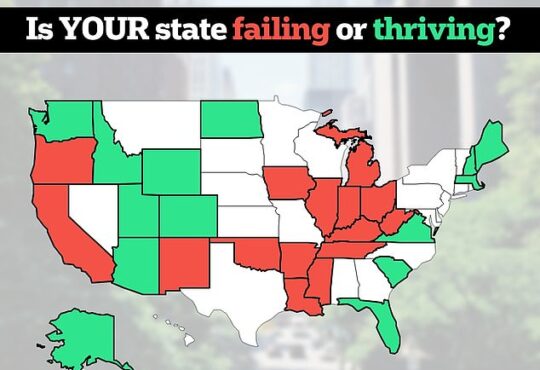‘Flip-flopping’ has cost UK billions in investment cash since 2010, says report | Economic policy
Britain’s economy has lost billions of pounds in investment since 2010 amid government “flip-flopping” on its industrial growth plans as it churned through 11 different economic strategies, according to a report.
As the chancellor, Jeremy Hunt, prepares for his autumn statement next week, industry bosses warned ministers that more consistency was required to increase investment levels after more than a decade of instability.
According to the left-of-centre Institute for Public Policy Research thinktank, the constant chop and change of government industrial strategy and a revolving door for senior ministerial appointments have undermined the country’s ability to attract investment.
The IPPR pointed out that since 2010 Conservative-led governments had appointed nine different business secretaries and seven chancellors, resulting in the launching of 11 economic strategies – from George Osborne’s 2011 “plan for growth” to Hunt’s “growth plan” announced this year.
Publishing a report backed by two leading business groups and the former chief executive of Siemens UK Jürgen Maier, the thinktank said companies were crying out for consistency, certainty and clarity.
Stephen Phipson, the chief executive of the manufacturing trade body Make UK, said: “Recent governments have been so confused about industrial strategy that they’ve had 11 of them in 13 years. No wonder businesses are putting investments in the UK on hold.”
Describing the lack of a long-term industrial strategy as the UK’s “achilles heel”, Phipson urged the government to set out its strategic objectives, including for growing green manufacturing. “Every other major economy has a national manufacturing plan, underlying the importance of an industrial base to the success of its wider economy. The UK is an outlier not having one and, if we are to compete on a global stage, we need one as a matter of urgency.,” he said.
Hunt is preparing to outline the government’s plans for increasing private investment and growing the economy, after forecasts from the Bank of England this month showed Britain would come close to recession next year.
Writing in an open letter to the chancellor, the chief executives of 37 local chambers of commerce across the country said “much needed solutions to Britain’s investment problem” were required.
Representing more than 35,000 companies in the British Chambers of Commerce network, the bosses said the autumn statement would be one of the government’s last chances before the next general election to show it could provide businesses with the long-term certainty they needed to make investment decisions.
The letter urged Hunt to overhaul the UK’s planning system to support companies with investment in business premises, factories and shops; upgrade the energy grid; and extend tax breaks for business investment.
Growth in business investment in the UK has been consistently worse than other leading economies in recent decades, with a particularly weak track record after the 2016 Brexit referendum. A report from the IPPR in June found business investment in the UK was lower than in any other country in the G7, and 27th out of 30 Organisation for Economic Co-operation and Development (OECD) countries, ahead of only Poland, Luxembourg and Greece.
after newsletter promotion
Publishing a blueprint for a modern green industrial strategy, the thinktank said there were four key areas for the government to focus on: production, purchasing, planning and governance, and the wider economy.
It said the government could shape industrial production through subsidies, tax allowances and regulations, while guaranteeing the purchase of goods by the state – as seen with Covid vaccines – could spur private investment. An effective policy would also involve clear plans and oversight, as well as ministers supporting the wider economy.
George Dibb, the head of IPPR’s Centre for Economic Justice, said: “Industrial strategy is having a global resurgence but in the UK it’s still talked about in outdated terms. There’s no such thing as a free market – governments shape markets every day. What’s needed is for this to be done in a strategic way, and for this strategy to last long enough to influence business decisions.”
A spokesperson for the Treasury said the chancellor planned to “focus on the growth industries of the future” at the autumn statement, adding: “We want to be a global leader in these sectors where there is a strategic opportunity to progress – backing business to innovate and grow the UK economy, creating good jobs across the country.”






